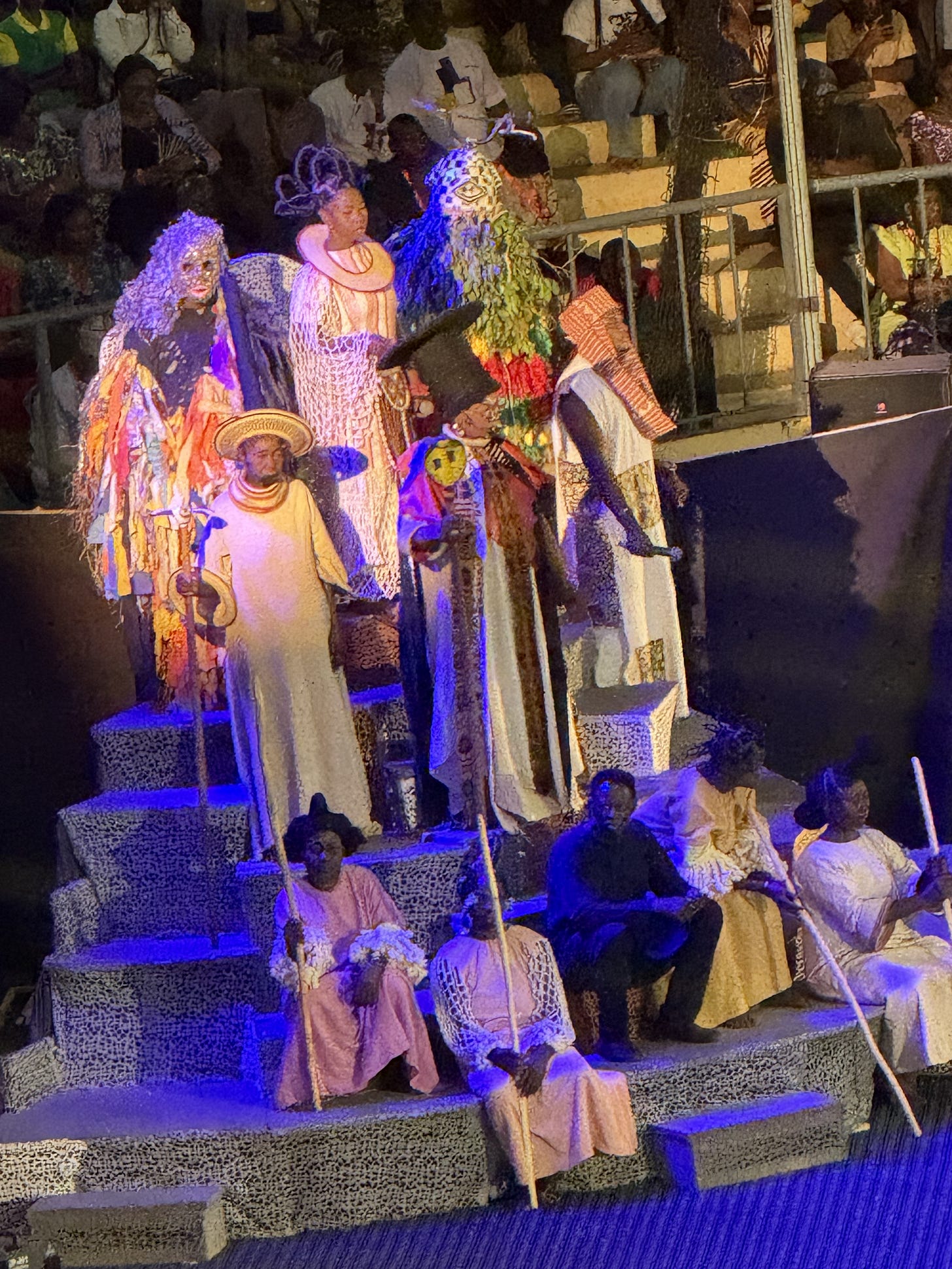The Story Is Not For Sale
Lessons from African Cinema and FESPACO
There's a particular kind of burnout that haunts today's storytellers, thought leaders, and cultural producers. It's not just the exhaustion of overwork or the fatigue of staying relevant. It's the quiet erosion of self that happens when your life becomes indistinguishable from your brand. When your voice has been optimized for visibility. When your story—your real, complex, human story—has been flattened into a product for public consumption.
We live in a hypermediated world where the demand to package, share, and monetize every aspect of our identity is constant. The gap between who we are and who we appear to be widens until we hardly recognize the person performing on our own behalf.
Senegalese filmmaker Djibril Diop Mambety once said, "It's good for the future of cinema that Africa exists." He wasn't just talking about representation or visibility. He was speaking to a deeper truth: that African storytelling has always resisted the commodification of culture. That there are still places in the world where story is not product.
The Machine of Modern Storytelling
Hypermediation is what happens when every experience, every thought, every moment of self-expression is run through a machine designed to turn it into content. Storytelling becomes strategy. Identity becomes brand. We trade in authenticity for algorithms. We optimize our insights, our art, even our vulnerabilities—anything to keep feeding the system.
For many storytellers and thought leaders, this process is subtle but suffocating. It's why so many feel creatively stifled despite their success. It's why what once felt like meaningful work now feels like maintenance. It's why the pressure to be "on-brand" starts to flatten the edges of who we really are.
Stories are streamlined, tested, packaged, and sold. But as Mambety pointed out, even with all the money in the world, Hollywood couldn't have made a film like Touki Bouki. Because some stories—real stories, human stories—refuse to be productized.
Finding Another Way: FESPACO
I spent the last week at a gathering that felt like an outright refusal of the commodification of culture: Fespaco Biennale. Founded in 1969, FESPACO (Festival Panafricain du Cinéma et de la Télévision de Ouagadougou) emerged during a pivotal moment in African history, as newly independent nations were asserting their cultural sovereignty. What began as a small gathering of filmmakers in Ouagadougou has grown into the continent's largest film festival and cultural event. Every two years, thousands of filmmakers, critics, and cinema lovers make the pilgrimage to Burkina Faso, transforming the capital city into Africa's film capital for a week of screenings, debates, and celebrations.
FESPACO is more than a celebration of film—it is a gathering of cultural memory. A place where story resists being stripped of its local meaning or sold back to the highest bidder. Where filmmakers don't just ask how to get seen, but how to stay rooted in the realities that birthed their work.
The festival's coveted prize, the Étalon de Yennenga (Stallion of Yennenga), named after a legendary warrior princess from Burkina Faso, represents more than artistic achievement—it symbolizes the pride and resilience of African cinema in the face of global commercial pressures.
Reclaiming Story from the Market
African storytelling traditions hold a different logic. Stories in these contexts aren't created for mass appeal or market validation. They are acts of preservation, ways of carrying knowledge, memory, and truth across generations. They belong to the people, not the platform.
For those of us who feel trapped inside the algorithmic churn, there is wisdom to borrow from these practices.
Here's what they teach:
Tell stories for your people, not your feed. Prioritize community over clout.
Value truth over polish. Let the rough edges stay.
Guard what's sacred. Not everything needs to be shared.
Resist the algorithm's tempo. Let stories unfold at human speed.
Honor lineage. Remember, you come from somewhere. Your work is part of something bigger than you.
These are not just creative strategies. They are survival strategies for anyone trying to stay whole in a world that keeps asking for more content and less soul.
As Mambety told us, "It's good for the future of cinema that Africa exists." And maybe it's good for the future of our own creativity, too. Because the real work isn't to be seen. The real work is to stay human.



